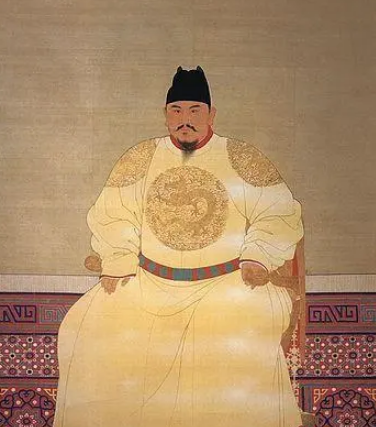The Jingnan Campaign was a famous power struggle within the royal family in Chinese history. This article will focus on why the Jingnan Campaign was successful and analyze how Zhu Di achieved victory in this war.

I. Background Introduction
The Jingnan Campaign occurred in the first year of Jianwen in the Ming Dynasty (1399 AD), a war between Zhu Di, the fourth son of Zhu Yuanzhang, and Zhu Yunmin, the emperor at that time. After Zhu Yuanzhang's death, the throne was passed to his grandson Zhu Yunmin, known as the Jianwen Emperor. However, Zhu Di, as the fourth son of Zhu Yuanzhang, was deeply dissatisfied with the reign of the Jianwen Emperor. Before the outbreak of the war, Zhu Di had accumulated a large number of troops and resources in Beiping, laying a solid foundation for the victory of the war.
II. Strategic Deployment
1. Choosing the Right Moment
At the beginning of the war, Zhu Di chose the correct moment. He took advantage of the fact that the Jianwen Emperor had just ascended the throne and his power was not yet stable to launch a rapid attack. This gave Zhu Di a precious strategic advantage as the Jianwen Emperor did not have enough time to respond to the war.
2. Flexibility and Mobility
Zhu Di demonstrated exceptional military skills during the war. He was adept at adjusting his strategic deployments flexibly according to changes in the battlefield situation. In the Nanjing Defense Battle, Zhu Di adopted a flanking tactic, bypassing the defense line of Nanjing City and attacking the Jianwen Emperor's headquarters directly. The successful application of this tactic put the Jianwen Emperor's army in a passive situation.
3. Foreign Aid Support
During the Jingnan Campaign, Zhu Di received support from some feudal lords. These feudal lords provided powerful foreign aid to Zhu Di, greatly enhancing his military strength. The presence of these foreign aid providers also provided an important guarantee for Zhu Di's victory in the war.
III. Psychological Warfare
In addition to military advantages, Zhu Di was also skilled in psychological warfare. During the war, he used various means to weaken the morale of the Jianwen Emperor's army. For example, he sent people to spread rumors among the enemy army that the Jianwen Emperor had been captured, causing panic among the enemy soldiers. In addition, Zhu Di utilized his prestige in the army to actively seek the surrender of enemy generals. These psychological warfare tactics created favorable conditions for Zhu Di to achieve victory in the war.
IV. Conclusion
The success of the Jingnan Campaign can be attributed to Zhu Di's exceptional level of strategic deployment, military skills, and psychological warfare. He was adept at seizing opportunities, exhibiting flexibility and mobility, utilizing foreign aid, and excelling in psychological warfare. It was the combined effect of these factors that enabled Zhu Di to achieve the final victory in the Jingnan Campaign.
Disclaimer: The above content is sourced from the internet and the copyright belongs to the original author. If there is any infringement of your original copyright, please inform us and we will delete the relevant content as soon as possible.
































